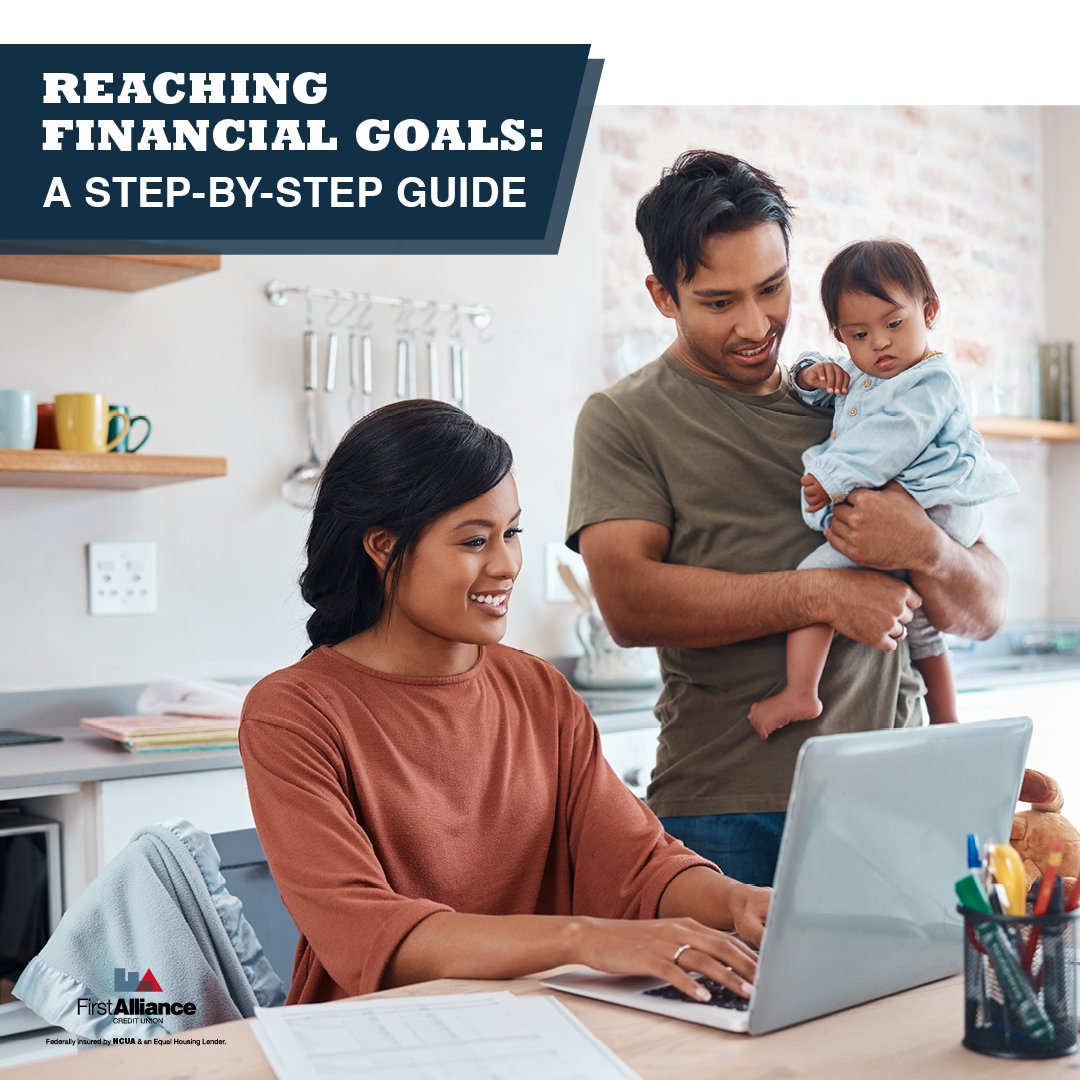Reaching Financial Goals: A Step-by-Step Guide
In today's fast-paced world, reaching financial goals has become more important than ever. Setting financial goals not only gives you a clear...
3 min read
 Chris Gottschalk
:
Jul 11, 2023 4:30:00 AM
Chris Gottschalk
:
Jul 11, 2023 4:30:00 AM

Setting financial goals is easy. Achieving those goals, though, is a bit harder. A lot of people have goals that they’ve perpetually delayed, or even given up on altogether.
If you’re one of these people, you might be wondering why you’re not achieving the goals you set for yourself. As it turns out, there are a few common reasons why people fail to reach their financial goals. Once you know what they are, you can take steps to correct them and put yourself back on the path to achieving your financial goals.

Having a financial goal is good, but the truth is that many people’s goals are kind of vague, like “I’d like to own my own house someday” or “I’d like to have a newer kitchen.” If you really want to reach your personal financial goals, you need to make them SMART goals. In other words, they should be:
When you know all these aspects of a financial goal, you’ll have a clear idea of what you need to do, when you need to do it and even if it’s a goal you can achieve at this point. For example, if you want a newer kitchen you can create a SMART goal that will lay out:
Creating a budget has several advantages, not the least of which is letting you know how much money you can put towards your financial goal. Without a budget, you’ll have no idea how much you can put aside each month, which means you’ll have no way of knowing when you’ll achieve your goal, or if it’s even possible.
Fortunately, creating a budget isn’t hard. Even better, once you’ve created a budget you’ll feel accomplished and empowered, and you can use that momentum to start working on your financial goals.
One reason why people fail to reach their financial goals is simply that they’re afraid to fail. They worry about setting up a goal, missing one of their benchmarks, and letting themselves down if they can’t carry out their plan.
If you have a goal that you’re worried you won’t be able to reach, first take a deep breath and consider the fact that your goal isn’t a task that absolutely must be done. It’s true that one of the benefits of planning for a financial goal is to hold yourself accountable to your plan, but this goal is for you alone, and no one outside of yourself needs to know if you haven’t hit one of your benchmarks. Of course, if you have a goal you've set with a partner, you probably will feel some trepidation, but in a healthy relationship you should be able to trust that your partner will support your goals and the goals you've set as a couple.
Next, take a look at the goal you have set for yourself and figure out why you’re worried you won’t be able to reach it. Maybe you’re worried you won’t be able to save the amount you planned each month, or maybe you don’t think you’ll be able to reach your goal when you hoped you would.
Once you know what part of the goal troubles you, all you have to do is alter it to make your goal easier to reach. Remember, this is your goal, so feel free to alter it to fit your comfort level. Once you’ve altered your goal, put it into practice and don’t be afraid to change it again if you still worry about not reaching your benchmarks. 
Nothing derails your financial plans quite like an emergency. For instance, if you have $2000 in your bank account that you were saving for your summer vacation and you get in a car accident, you’ll have to use that money to pay for repairs and medical bills.
The best way to guard against financial emergencies is by setting up an emergency fund and regularly putting money in it. This might mean you won’t be able to contribute as much as you wanted to your other goals each month, but it will mean that you shouldn’t have to use the money you saved toward your goal to take care of the emergency.
It’s easy to get frustrated if you’re not reaching the financial goals you’ve set for yourself. However, all you need to do to get back on track is look through the reasons why you might not be hitting your goals and see if there are any changes you can make that will get you back on track.
If you need help reaching your financial goals, become a member of First Alliance Credit Union today. We have several resources for people working towards their goals, such as a SMART Goal sheet and tracker as well as a budgeting guide, and you can even set up separate savings accounts where you can store the money you’re putting away for your goals

In today's fast-paced world, reaching financial goals has become more important than ever. Setting financial goals not only gives you a clear...

These days, it can be hard to feel like you’re achieving your goals. Thanks to inflation, you’re probably having to put more money towards day-to-day...

Everyone can benefit from setting financial goals, but the people who get the biggest advantage might just be teenagers. When teenagers learn to set...